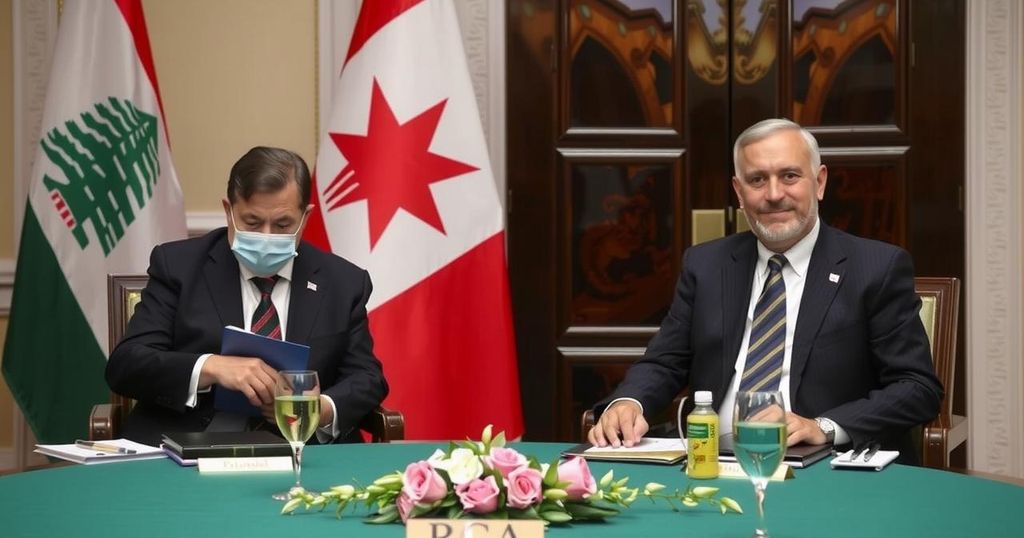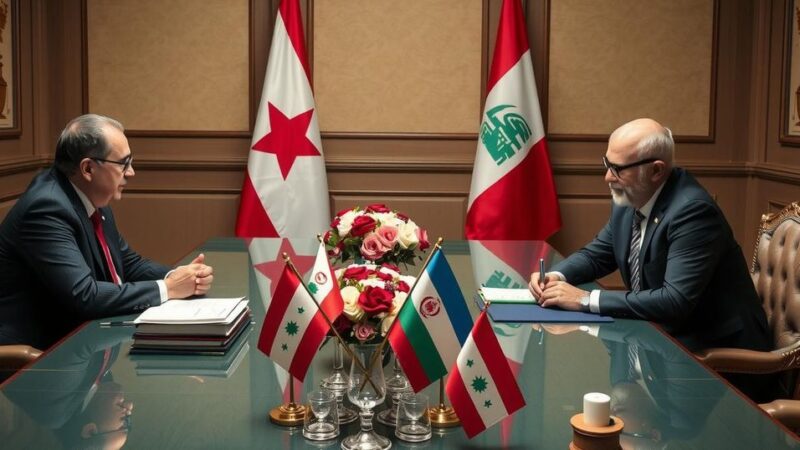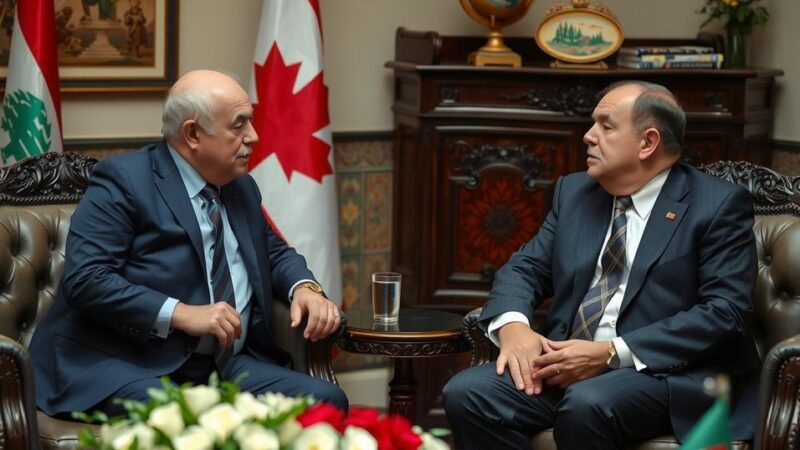Lebanon’s Prime Minister Najib Mikati visited Damascus, marking his first official meeting with Syrian Prime Minister Ahmad al-Shara. This meeting comes after escalated border tensions that injured Lebanese soldiers, and coincides with Lebanon’s internal political shifts following the election of President Joseph Aoun. The discussions focus on managing regional instability resulting from Syria’s prolonged civil war.
Lebanon’s Prime Minister, Najib Mikati, made his inaugural official visit to Syrian Prime Minister Ahmad al-Shara in Damascus on Saturday. This meeting marked a significant diplomatic engagement between the two nations, occurring in the wake of rising tensions along their shared border, where recent clashes resulted in injuries to several Lebanese soldiers. The discussions come on the heels of the recent election of Lebanon’s President Joseph Aoun, which could lead to forthcoming consultations regarding the appointment of a new prime minister in Lebanon.
During the meeting, Prime Minister Mikati and his Syrian counterpart addressed the precarious state of Syria, which has been shattered by 14 years of civil strife and remains fragmented by various armed factions. The Lebanese government, mindful of its own stability, is particularly concerned about the potential for Syrian conflict to spill over into Lebanon. Notably, recent incidents along the border, linked to Syrian militants targeting Lebanese forces, underscore these concerns.
Prime Minister al-Shara leads Hayat Tahrir al-Sham, the Islamist group that recently ousted the long-standing regime of Bashar al-Assad. His administration now faces the formidable task of restoring order in a nation ravaged by war, as Lebanon anticipates an ongoing diplomatic engagement amidst regional instability. Conversations between these two leaders symbolize a cautious step towards addressing shared challenges and fostering stability in a volatile region.
The context of Prime Minister Najib Mikati’s visit to Syria is shaped by several significant factors. First, it is the first official meeting between Lebanese and Syrian leaders since the latter’s government underwent a change following the fall of Bashar al-Assad’s regime. Second, tensions along the Lebanese-Syrian border have recently escalated, leading to injuries among Lebanese soldiers, thus necessitating a dialogue to ease relations and address security concerns. Furthermore, the backdrop of Lebanon’s political landscape, marked by the election of President Joseph Aoun after a two-year vacancy, adds another layer of urgency to the discussions.
In conclusion, the meeting between Lebanon’s Prime Minister Najib Mikati and Syrian Prime Minister Ahmad al-Shara represents a pivotal moment for both nations in addressing their mutual concerns amidst regional instability. The discussions not only highlight the pressing need for security cooperation along the border, but also reflect Lebanon’s ongoing efforts to navigate its internal political landscape post-election. As both leaders confront the complex aftermath of the Syrian civil conflict, this meeting could be instrumental in setting the stage for future diplomatic relations and stability in the region.
Original Source: www.nytimes.com







